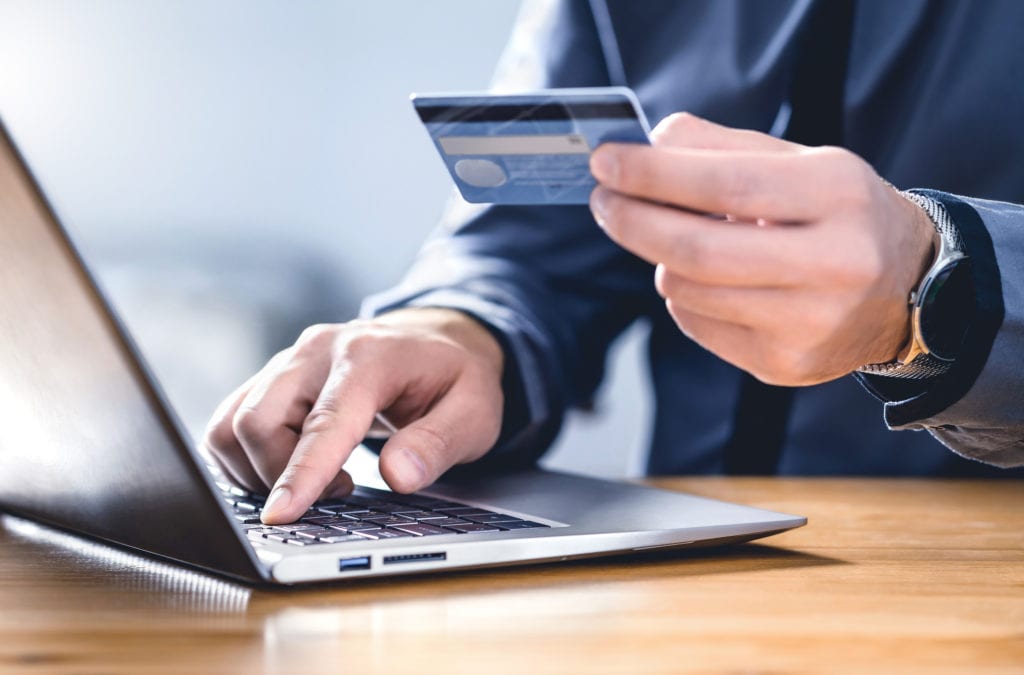
Early retail statistics for the 2020 holiday season are already showing a big increase in online shopping versus in person. In just the first 10 days of November, year-over-year online shopping rose 21%.
A majority of consumers (63%) are opting to stay away from potentially crowded malls and shops due to COVID-19 and do their holiday buying online instead.
Unfortunately, online consumer activity isn’t the only thing that’s increased due to the pandemic. Cybercrime and phishing attacks have skyrocketed this year, leading to an increasing need for virus removal in Treasure Valley, identity theft services, and other remedies.
In Q2 2020, cybercrime increased 12% over the prior quarter, with 419 threats per minute.
With the holiday season in full swing, it’s important to follow some smart tips for online security to keep you from becoming a cybercrime victim this year.
Avoid Scams With These Safe Online Shopping Practices
Always Look for HTTPS Before You Buy
Any site that you shop or enter any type of data into, should have the HTTPS designation at the beginning of the URL (not just HTTP). This indicates that the site has encryption, which protects your data from being compromised when you enter it into a web form or shopping cart.
HTTPS is also indicated by a lock icon to the left of the website address.
Delete Your Payment Method After You Check Out
Retailer databases are particularly rich targets for hackers. This means the longer you allow a retailer to keep your payment card information in their database, the more at risk it becomes.
Get in the habit of immediately deleting your payment card details from a website after you check out. Once you’ve checked out and received the payment receipt, it’s safe to delete them, and it won’t impact your transaction.
Many sites save payment details by default, and you may not even realize it. So always check your account and payment settings before you leave the site.
Don’t Shop on Unfamiliar Apps
Mobile apps are a popular way to shop online these days, with 53% of smartphone users purchasing via a retailer mobile app.
Be wary of unfamiliar apps or downloading apps that you aren’t 100% sure are the real thing. It’s better to go to a retailer’s site to download their app, rather than trying to pick it from an app store search. Otherwise you could end up choosing a malicious look-alike app that plants spyware or is designed to steal banking information.
Never Shop When on Free Wi-Fi
When you’re on a public Wi-Fi, you need to act as if a hacker is looking over your shoulder and recording every keystroke, because that’s exactly what can happen virtually.
Never shop online when on a free public Wi-Fi. Instead, turn off Wi-Fi on your device to ensure you’re switched over to a secure connection through your wireless carrier before shopping or entering any passwords into a site.
Secure Your Online Accounts
Once you begin shopping online, you can leave a trail of logins behind you that hackers are trying to breach. If the account has a payment method saved, then the hacker hits the jackpot.
There are two important ways you can increase the security of your online accounts and make them nearly hacker-proof:
- Use a password manager like Keeper Security to help you ensure each account has a strong and unique password; and
- Implement multi-factor authentication using a tool like Cisco’s Duo MFA
Use Payment Methods That Don’t Share Your Card Details
You can protect your debit or credit card from being exposed or maliciously used by a hacker by using payment methods that don’t share your card details.
These include paying via things like PayPal, Apple Pay, Google Pay, and other mobile wallets. You can also use a prepaid debit card that only holds a certain amount of money and is not tied to any of your bank accounts.
Only Shop Sites That You Know
It can be tempting to shop a site that you find in a Facebook feed and that looks to have great deals, but these can often be scams or may send items that look nothing like the photo.
It’s best to only shop online on sites that you know you can trust. Also be wary of 3rd party retailers that sell on sites like Amazon and Walmart, and thoroughly check out their reviews before you buy.
Keep An Eye on Your Bank Accounts
It’s especially important to keep an eye on your bank accounts for any fraudulent charges during the holiday season. Fraudsters that have stolen your payment card information will often put through several small charges, hoping they’ll get missed, rather than a big charge that’s sure to draw attention.
Get Help With Passwords and MFA Security!
Connect2Geek can help you put account security in place that ensures your online shopping accounts stay secure and protected.
Schedule a free account security consultation today! Call 208-468-4323 or reach out online.
